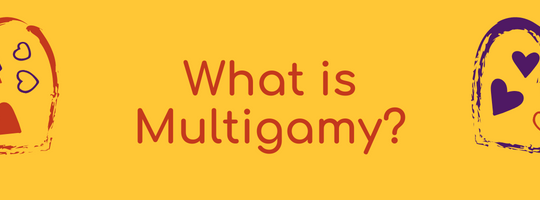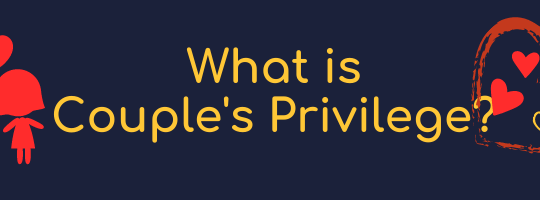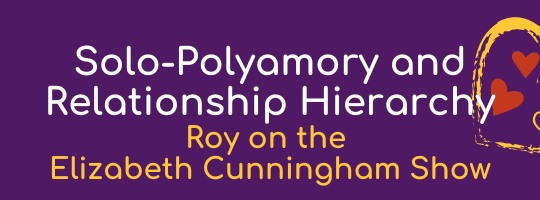The journey I embarked on included learning that my value doesn’t come from how desirable I am or how desired I can make my partner feel at all times.
From the time I felt I was an adult, I have tried to be conscious about the work I needed to do on myself in order to be a better human being, better friend, and better partner. Actually, for most of my life I tried and failed at being conscious about it. It was really the past decade and in particular the work I have done in therapy, in psychotherapy training and practice of other modalities, that helped me figure out this very important piece relating to how I judge myself to have value.
For the longest time, I measured my value as what I meant to others.
- Am I a good son to my mother?
- Does my girlfriend like the way I kiss?
- Do I perform well at work?
- Does my flirting with women succeed in getting a date?
- Can I make her have an orgasm?
- Does she tell me that she needs me?
Essentially I constructed a sense of who I was, based on the value I was to others. I think that many people do this, and don’t think that there is anything wrong with it. Well, is there anything wrong? If the feedback from people around me is positive, and this sends me the message that I am wanted/needed by them, shouldn’t this be enough for me to feel good and have a complete sense of Self?
No, not really.
And here is why – As soon as someone whose opinion matters to me, criticised me or expressed disappointment, my ego would crumble and I would feel depleted and unworthy. This happened because the ego had constructed a sense of ‘false Self’ from what was around me as I grew up and formed my personality. Without a robust sense of authentic self to hold it up, the structure just collapses.
In romantic and sexual relationships, when I value myself based on performance, stamina, compliments from partners etc., then my sense of safety and security, when tied to the ego, is completely at the mercy of people outside of my control who are on their own path. They do not exist just to help me feel valued at all times. They go through their own crises and insecurities which could then have a big impact on me.
What does the journey to see myself as having innate value and worth involve?
I have to begin separating and then understanding the difference between:
- Sexual desire
- The need for physical affection
- The need for emotional security
- The need for acceptance/love
Sexual desire
Having a body-based, natural impulse to connect sexually with another person. Desire is wonderful and helps elevate lots of positive hormones and chemicals in the brain & body (even if not fully acted on). Learning to isolate my desire from other needs and wants, means I can have more focus and be in a healthy exchange with my partner. I learned about direct and indirect routes to pleasure, I explored conscious touch, practiced asking for what I want and seeking to be connecting with another from a place of enthusiastic consent of both/all parties. Removing shame from sexual desire is a big part of this process.
Need for physical (non-sexual) affection
As social co-regulating mammals, humans evolved to respond to physical contact. The first thing that calms and comforts a baby is the feeling of direct, warm skin contact. This stays with us all our lives but as we grow up, we learn through socialisation that certain contact is no longer ‘acceptable’ or ‘moral’. Little kids get hugs and cuddles from their parents and eachother but this stops at a certain age.
A gender gap in how we give and receive non-sexual physical touch emerges. It stops being OK for men to cuddle with each other, or for people of any gender to embrace, kiss and cuddle unless they are in a romantic relationship. Wanting to have sex, then becomes a proxy for the actual need for physical contact.
If we can allow ourselves, and normalise in society, much more platonic touch and cuddles, we start to realise that our need for touch can be met by lots of different people, not only a romantic/sexual partner. This was essential for me to not always expect that my partner owes me touch, and to also know I can have a boundary around my own body. Asking for a specific kind of touch rather than expecting any physical connection to end in sex, means a more authentic connection.
I also am not threatened by my partners receiving various forms of touch from other people.
Need for emotional security
Just as humans have evolved to co-regulate with touch, our nervous system needs to be emotionally calm and grounded, for us to know we are safe. So often in relationships the most accessible way to get that feeling of emotional security is through a sexual act because we receive a hit of chemicals that give us an emotional ‘high’ and can simulate a feeling of safety, albeit only for a short time.
When we recognise that our need is specific, we can ask for what we actually need or work out when it is not available to us and take action to fulfil that need, rather than going for a distraction. I have learned to self-regulate and co-regulate intentionally to reach a state of emotional safety.
Need for acceptance & love
One of the main reasons for our species’ successful evolution, is our ability to collaborate, cooperate and provide mutual support. This was achievable with the social glue of acceptance, love and kinship. Our genetics still drive us today to seek community at all times. We have a fundamental need to feel accepted and loved.
Modern society, through the prism of capitalism, has commodified many of our needs including this one. We are marketed to and sold shortcuts to acceptance and stand-ins for community. We are told that the dyad, exclusive relationship is all that we need, where in fact what we need is real community. When we lack that, we place all of our need for acceptance and love on our single partner which is a heavy responsibility that no one is actually made for.
By unpacking all of this for myself I was able to achieve and maintain happier, more stable and more comfortable relationships. Elevating romantic love above all other kinds of love means that I will forever compare what my partner experiences with other people to the romantic experience that we share.
Romantic love is not at the top of a love pyramid. Romantic love won’t solve all my problems and erase my insecurities. Romantic love is just one type of love along a spectrum. When we link our sense of self-value and self-worth to how good we are at romantic love, we are doing a disservice to ourselves. We are also handing over a lot of power to our romantic partner which comes with the inherent risk that our self-esteem and self-confidence will change according to how well the relationship is doing.
This can have potential to become abusive and coercive, not only in romantic relationships but also in friendships.
I know that I deserve to be with people who truly see me. Who celebrate my spirit. No matter how wild, and how free it soars. Those who want me to fit their own narrow definition of acceptability, don’t really see the real me. When I continue to see myself through the perspective of such people, I keep myself small and restricted.
-
 Initial Consultation (20 minutes)£25 Deposit
Initial Consultation (20 minutes)£25 Deposit -
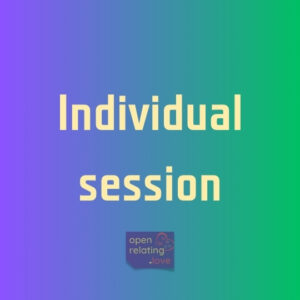 Coaching – for individuals£110
Coaching – for individuals£110 -
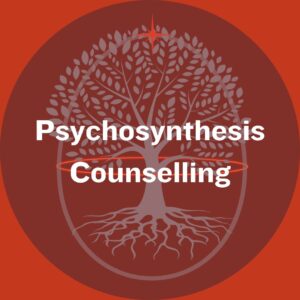 Counselling£90
Counselling£90



